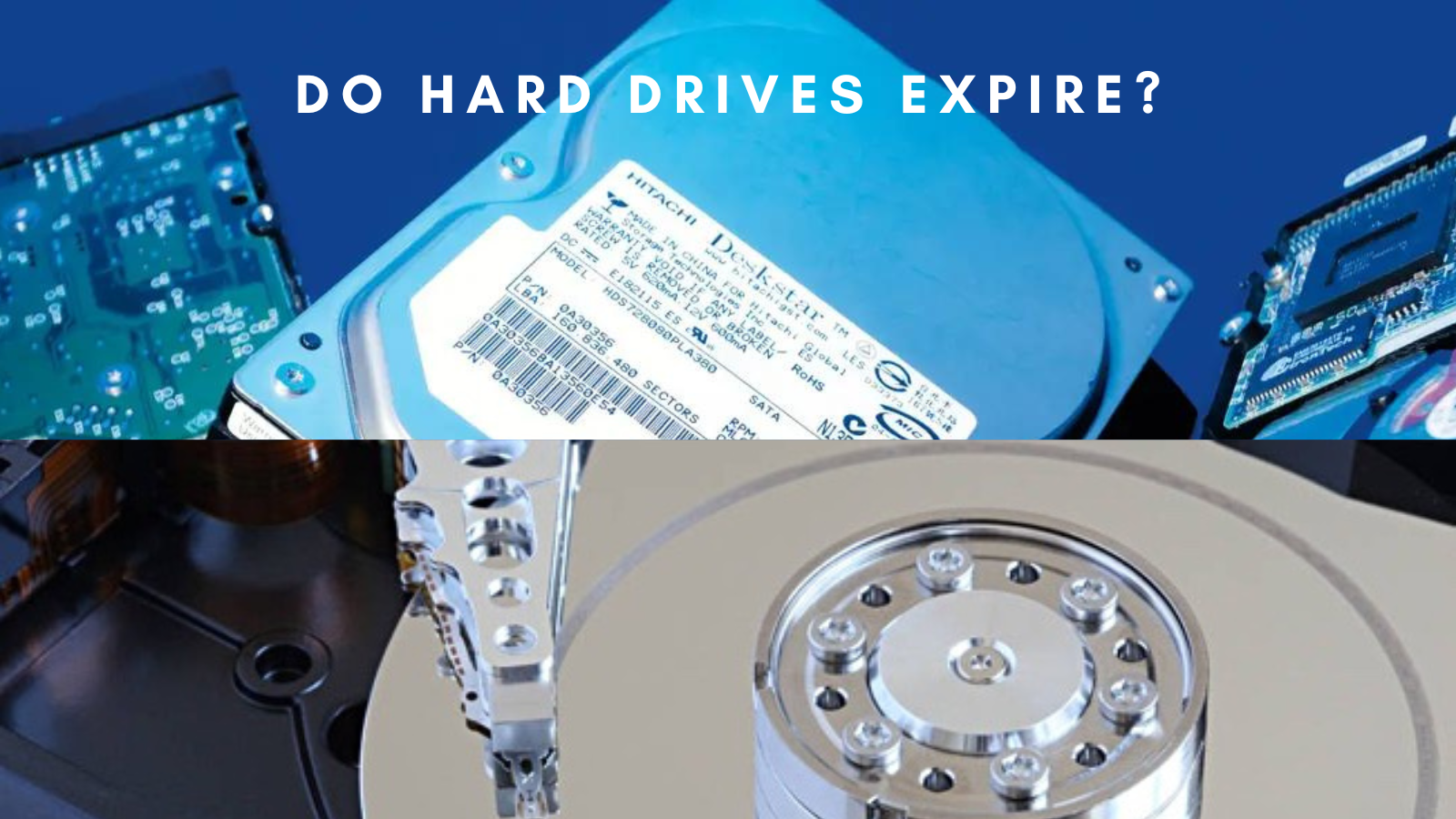A question often asked is “do hard drives expire? Hard drives keep a record of all your files just like a brain keeps track of the things we know. If a hard drive is dropped, damaged or the power goes out, it’s possible that data stored on the hard drive could be lost forever. It’s important to consider these types of issues when storing any files for archiving purposes.
We will answer the question regarding do hard drives expire and many others that relate to this topic. That way, you can have all relatable questions answered in one place. Like anything man made, you can expect that devices will eventually stop working or becoming irrelevant with the advancement of technology.
Contents
Can External Hard Drives Die?
Yes external hard drives die. They have similar life expectancy as internal drives for the most part. Wherever you plug in your drive, it is getting the same amount of wear and tear. The only difference between them is that they aren’t located on your computer, which does affect their lifespan, as they may not be used as often.
External hard drives are designed to be very durable and last a long time. It is possible that they can break, however, so to ensure you get the best performance out of your external drive be sure to give them the best care possible.
Do Hard Drives Expire? – The Facts
Hard drives, like all storage media, do eventually become obsolete as technology advances. As a result, your data will not be accessible many years from now. However, when it comes to hard drive life expectancy and the expiry date of an existing hard drive, there is little that you can do to actually prevent that occurrence.
A lot of variables contribute to how long a hard drive will last; its manufacturer, the intended use case and of course how much data is stored on it. So yes, hard drives do die, hence the limited warranty provided.
How Long Does A Hard Drive Last?
Hard drive life is measured in a number of factors such as brand, interface and model. For most standard desktop computers, the hard drive generally lasts an average of 4 – 7 years. While it can vary with how often you use your computer, hard drives are known to fail at any time without advance warning.
Hard drives have a life expectancy that is directly linked to its workload. A hard drive that is in a very busy desktop computer will wear out much faster than a hard drive that is running in a PC that rarely gets turned off, not even to sleep.
How Long Do External Drives Last?
External hard drives are usually used to store sensitive data. A good quality external hard drive, like WD Elements portable hard drive, can last for years. It is important to know how long your external drives last depending on their use, because you may need your data from the drive in the future.
From personal experience, I have had my WD passport for about 11 years and its still going strong. How regular you use your external hard drive and the care you give it, could play a vital role in its life cycle.
How Long Should Hard Drives Last?
Hard drives fail eventually. How long a hard drive lasts is a matter of how it is used. Generally, the average life expectancy for a personal computer hard drive is between 3 and 5 years of service before failure.
Longer lives can be obtained with expensive higher quality drives, as well as through regular servicing of the external hard drive’s internal components such as heads, spindles (for spinning discs) and read/write arms by replacing any worn parts. However, due to the cheap price of hard drives, most people don’t service them, plus opening one is risky.
How Do I know If My External Hard Drive Is Dying?
There are a lot of things to check if you think your external hard drive might be dying. For example, if you hear strange clicking or rattling noises when you try to access your files, that’s another sign something may have gone wrong. If you see warning messages on your computer or in your operating system about the capacity or errors of the hard drive, then this could be a problem as well.
One of the most clear signs that your external hard drive is dying is a decrease in transfer speed. Data transfers occur at different speeds depending on which drive you’re using and how it’s formatted, but as a general rule, if a drive takes longer than it used to to transfer data or has lost speed over time, this could indicate that its life cycle is nearing an end.
How Do Hard Drives Go Bad?
Hard drives fail for a number of reasons, and each situation is unique. Damage or destruction to the components within your hard drive can cause issues ranging from a slight loss of data to complete failure. The two most common reasons for failure are physical damage and an increase in the number of bad sectors in the drive.
Hard drives tend to fall into three categories: mechanical, logical and physical. Mechanical failures can cause data loss; logical failures occur when your computer’s hard drive encounters errors in the way it stores files because of a change in its settings. Physical failures cause errors when an actual part fails. Examples of physical failures include damaged or severed cables, a degraded hard drive or a faulty device controller card that was used to access the first hard drive from another interface.
Final Thoughts On Do Hard Drives Expire
Answers to do hard drives expire may vary, but in all honesty, they do die eventually. If persons are taught how to use and care for their hard drives, they can much more life from them than they think. Everything man made will expire and die eventually.

